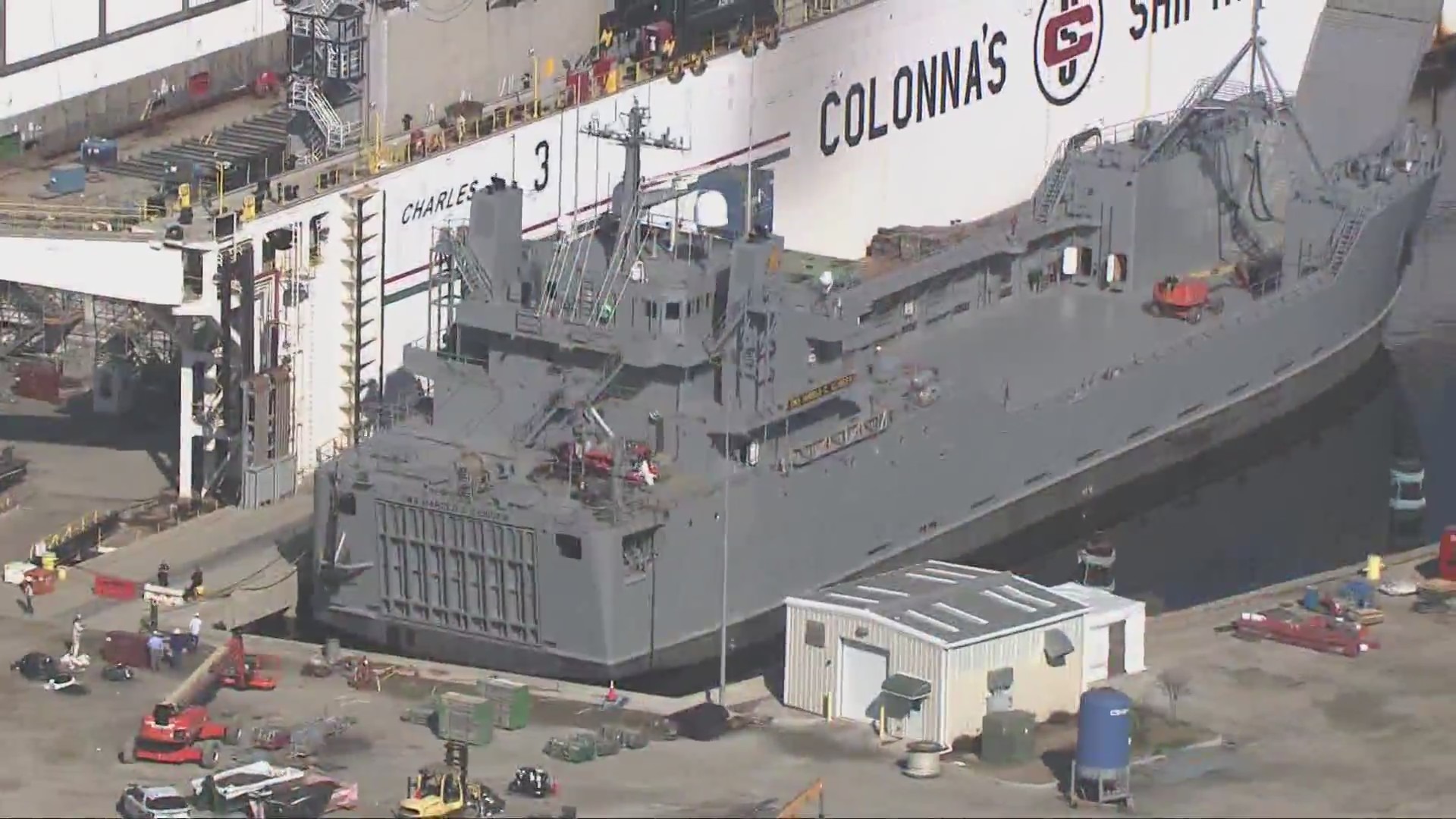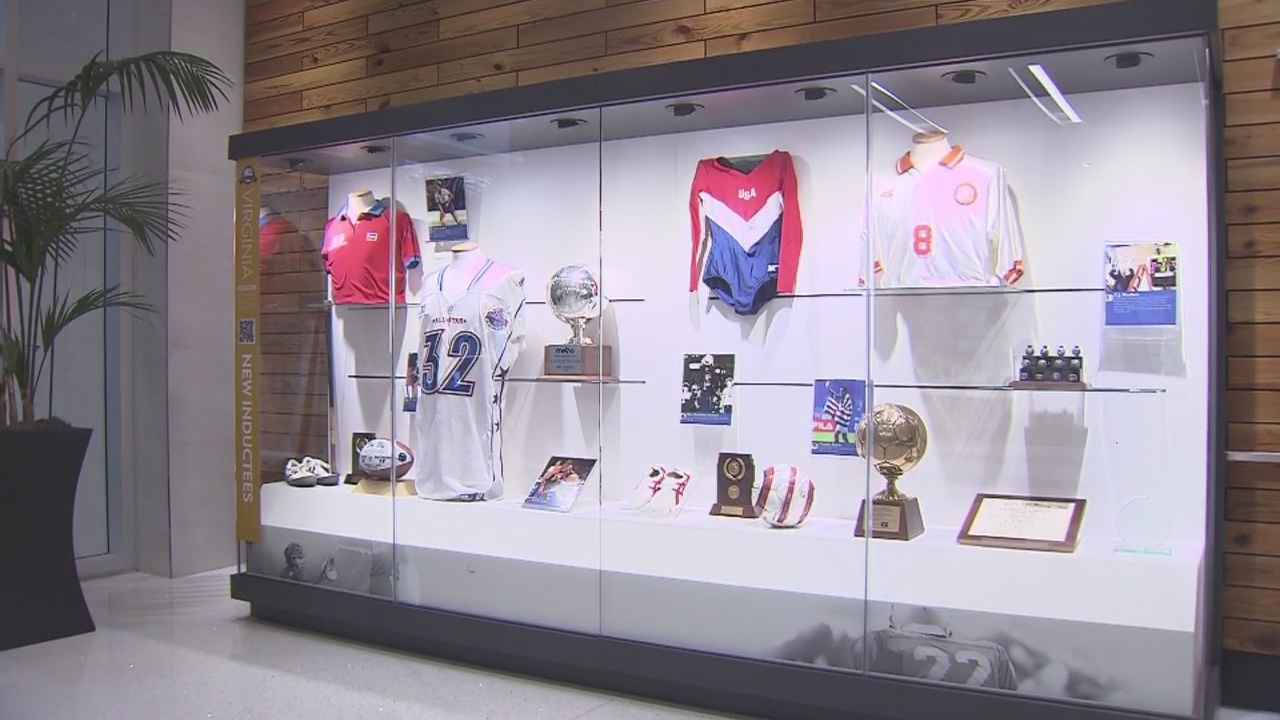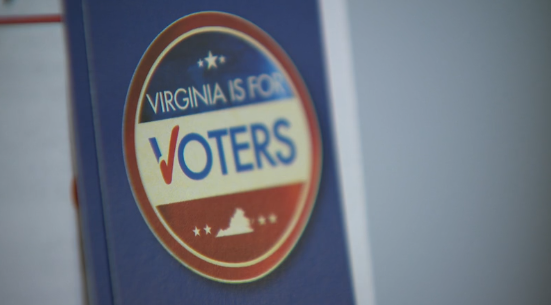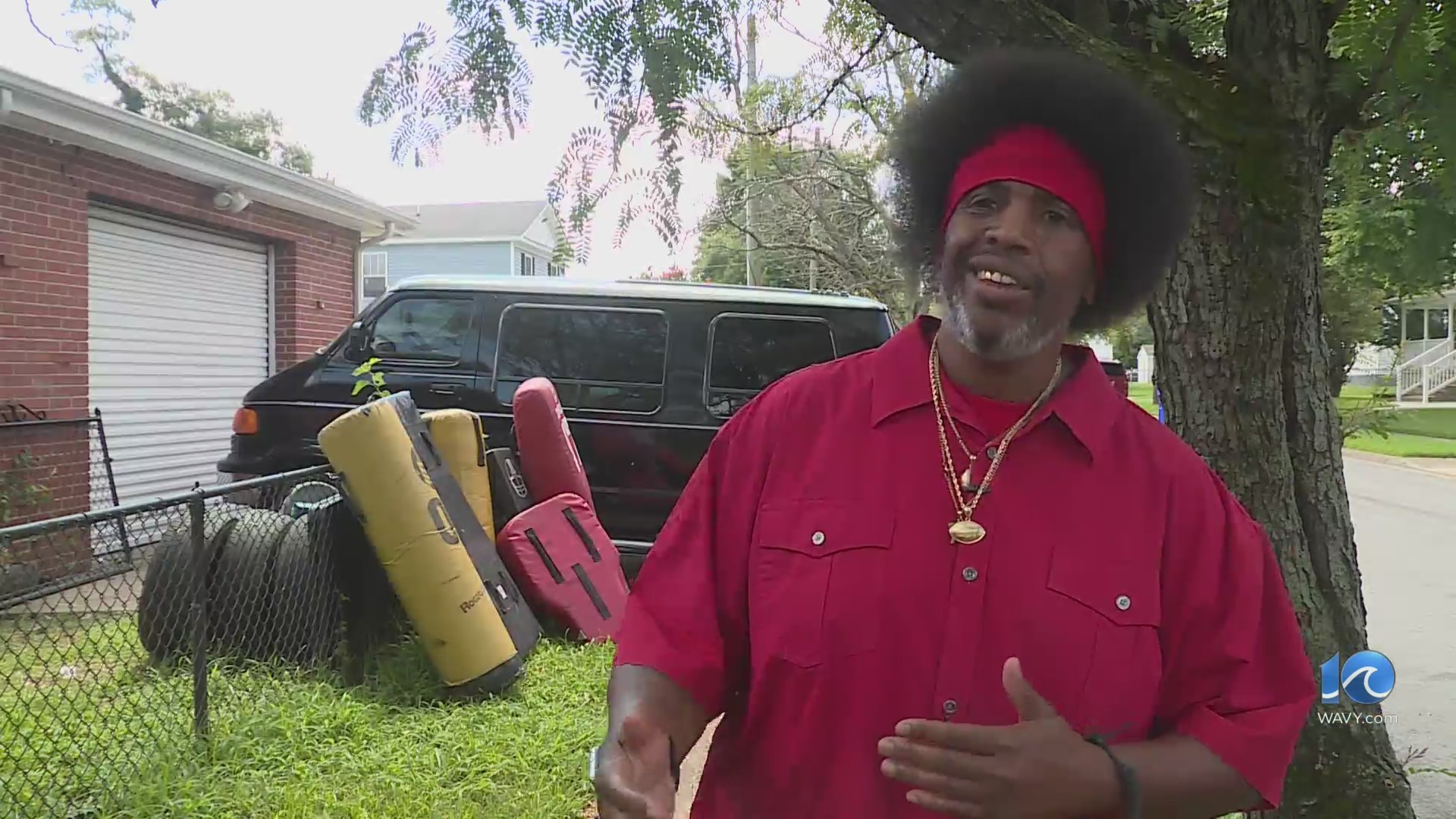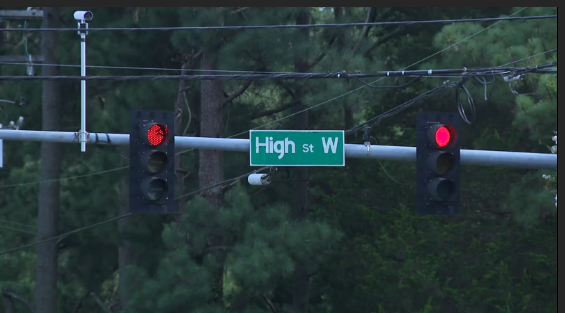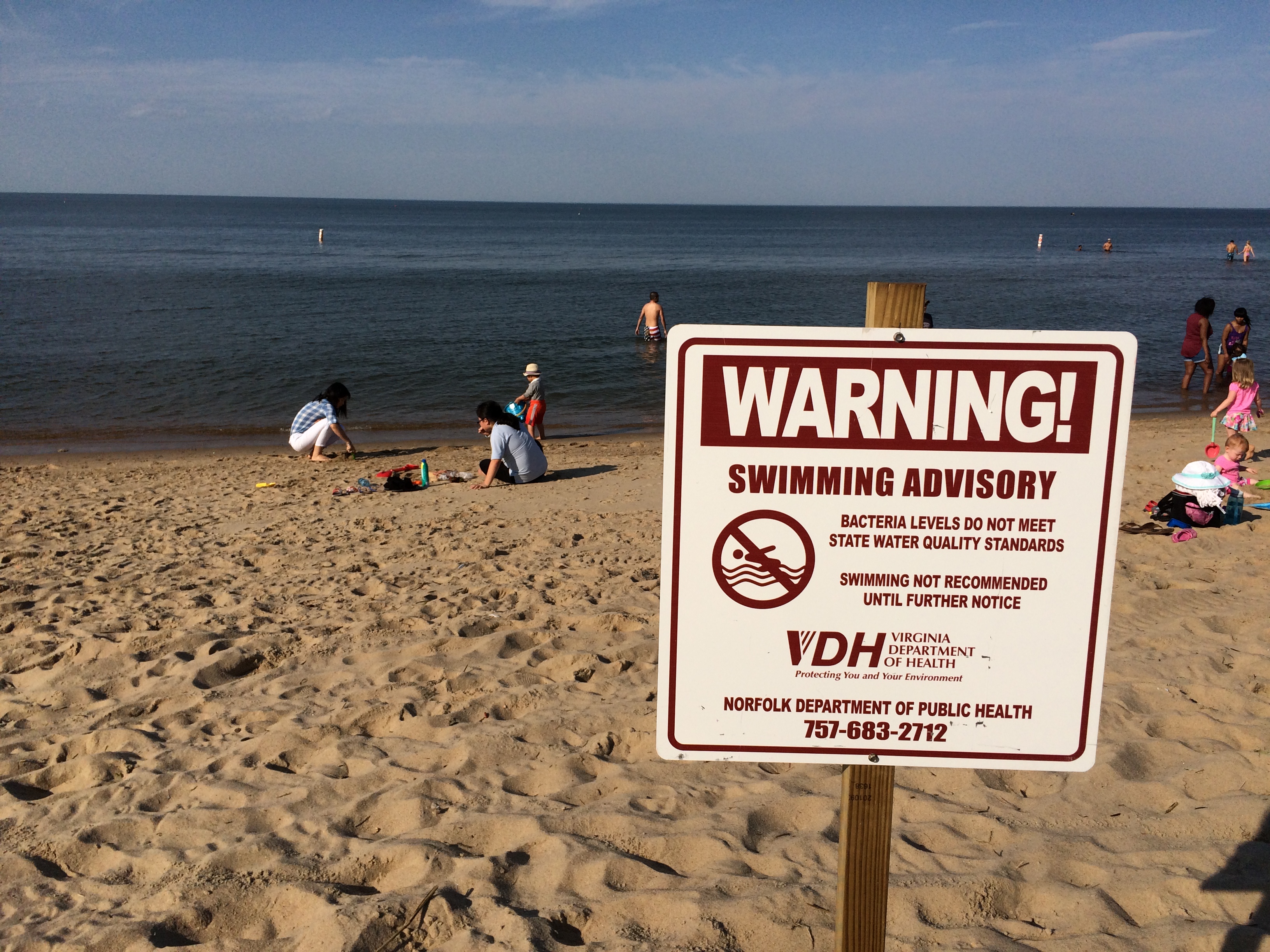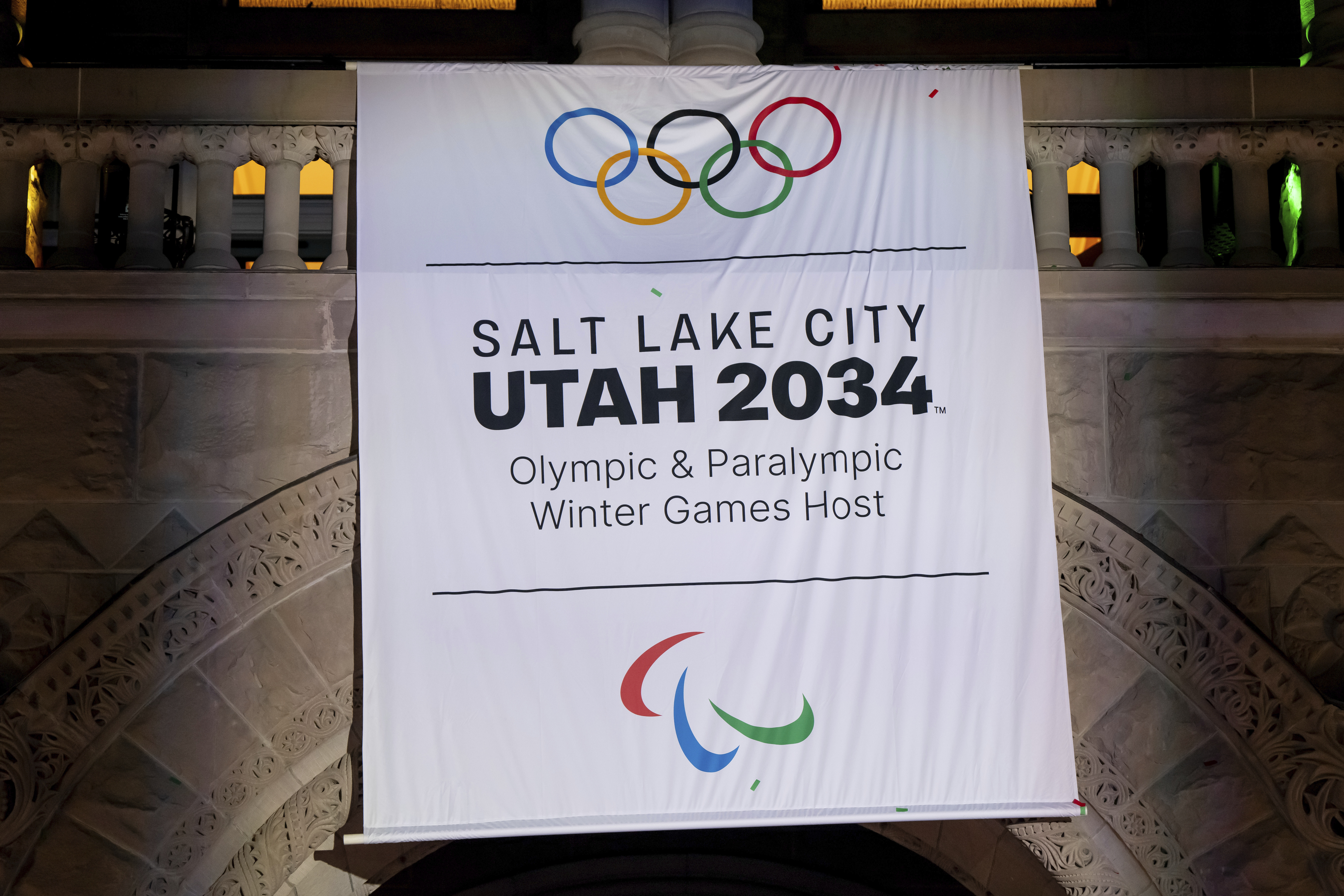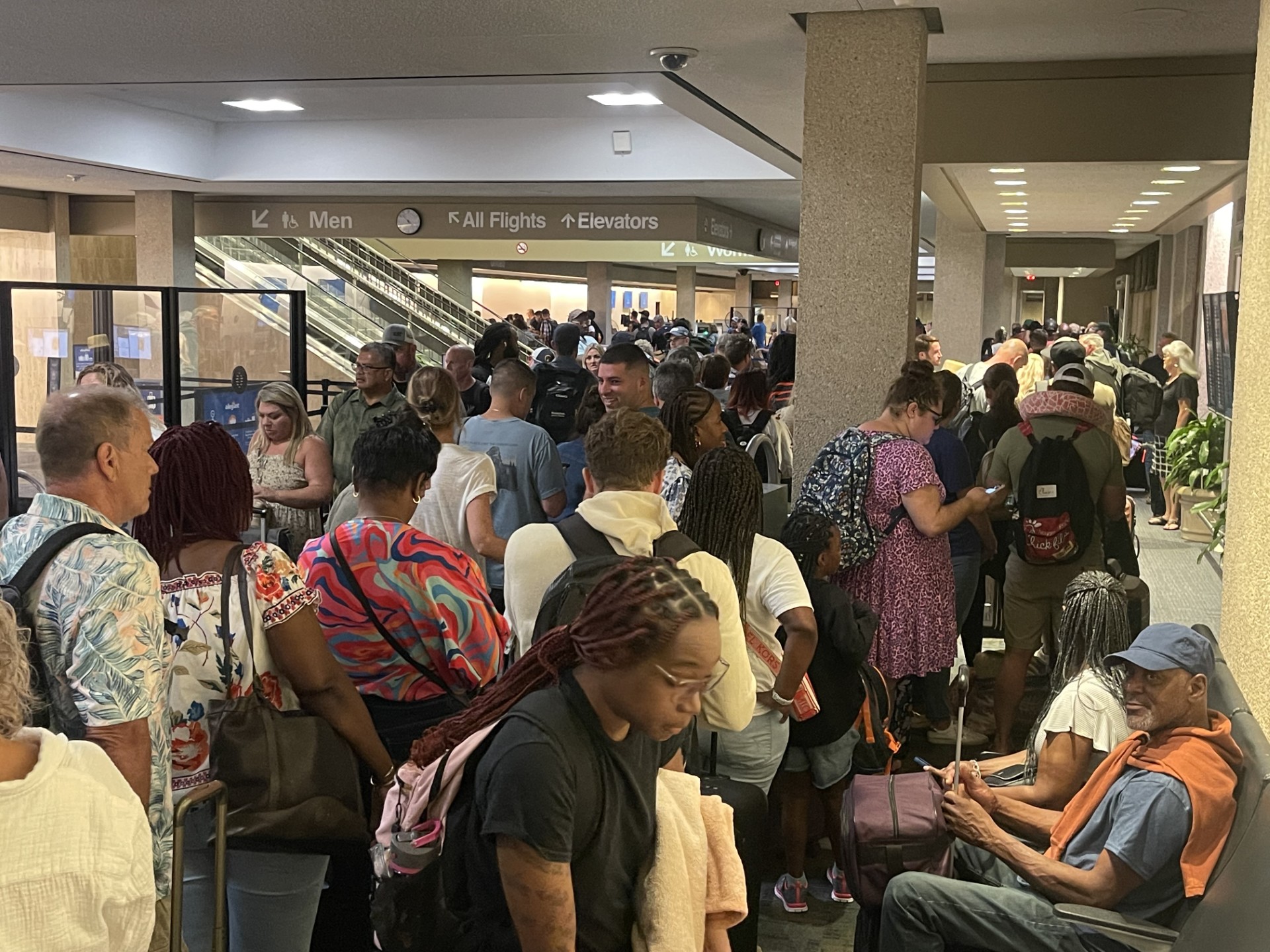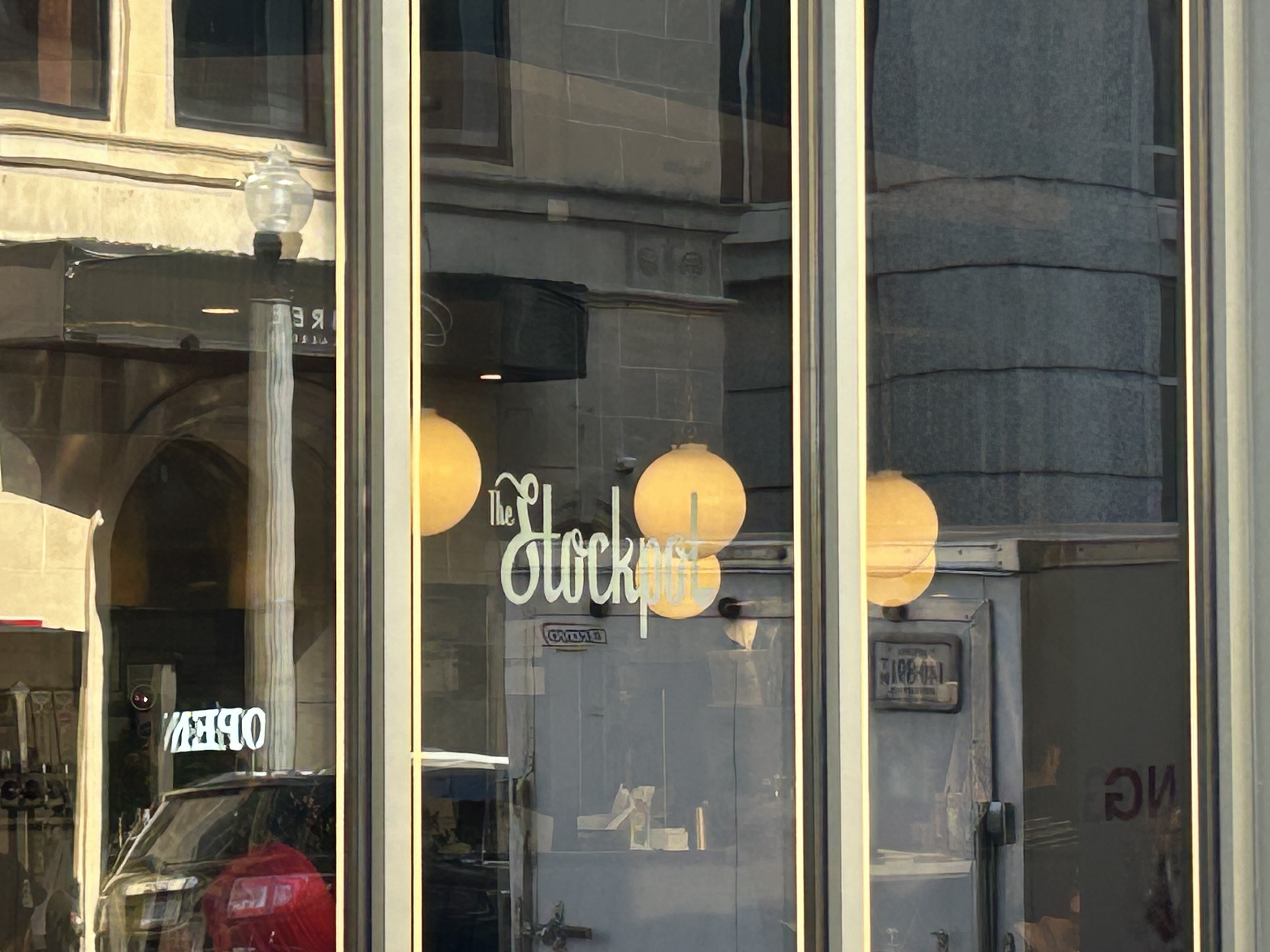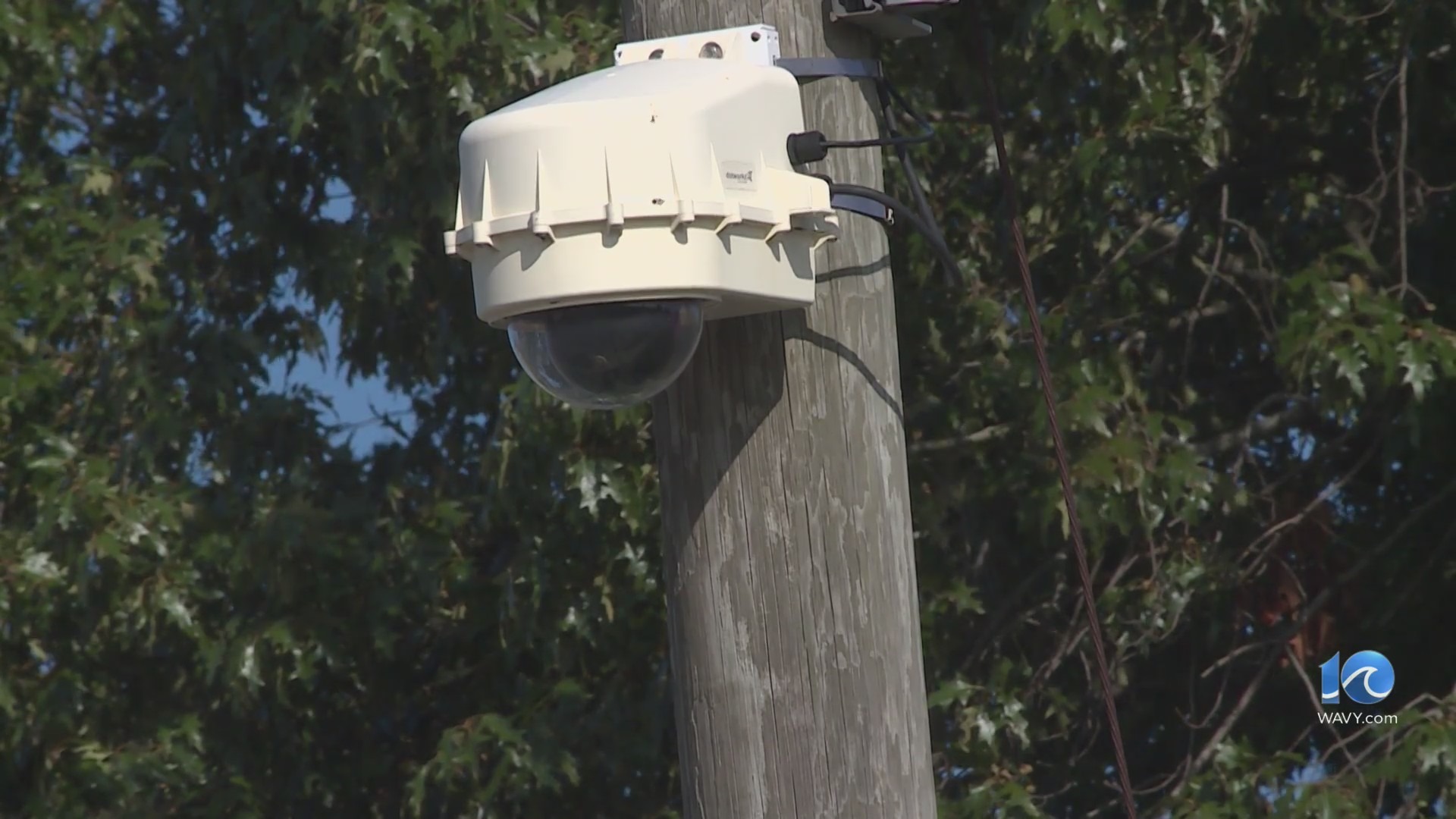PORTSMOUTH, Va. (WAVY) — Two hundred striking International Longshoremen Association workers from four different locals joined the picket line in Portsmouth, sending a united message to the owners of the shipping companies to raise their wages and curb automation.
“It has a lot to do with the ship line,” said ILA spokesperson Derrick Perry. “The ship line is who we are striking against. The port just happens to be in between, and they have residents. So, there are differences there.”
Perry says this is the message they are sending about a new contract.
“That our contract ran out at 12 a.m.,” Perry said. “We had the right to protest, and we’re protesting automation, which is part of it, and the future of our jobs, and we are fighting for higher wages too.”
ILA workers were given strict orders not to speak to the media, but Beatrice Harris had something to say.
“I am out here marching because people don’t realize the job and what we do,” Harris said.
Longshoremen are workers who load and unload freight from cargo ships to docks,
“They don’t understand the sacrifices we make, the rain, the snow and just yesterday we worked in a hurricane watch,” Harris said.
The entire day in Portsmouth, and over at the Norfolk International Terminals, truckers were passing by honking train horns in their trucks and cars, so loud it was startling.
Back in Portsmouth, 10 On Your Side heard the reasons the ILA cares about reducing automation at the port.
“It gives people a future to look forward to, so they may have a job,” Perry said. “It is no different than if you go into a store, and you see cash registers that are not manned, and that also means that workers aren’t on schedule anymore. It happened during COVID.”
The cost of this strike to the economy is figured at $4.5 billion daily. ILA workers hit the strike line at midnight Tuesday. They are on now on it 24/7 until there is a resolution with a contract agreeable to both sides.
“We’re standing in solidarity, and just like we want to work under a new contract because we have to know that our future is intact,” Perry said. “… We have people here, their sons work here, their daughters work here. It is about the future of where our job lies, and will we have a future if automation keeps coming into play? They are out here protesting against the U.S. Maritime Alliance that represents the major shipping lines.
Perry says the port is caught in the middle.
Negotiations continued through the night with counteroffers related to wages. The ILA reports the Shipping Alliance increased ILA’s offer and requested an extension of the current master contract.
ILA calls it positive movement in the right direction, and the ILA hopes to fully resume collective bargaining. The ILA is also looking to increase wages by nearly 50%, triple employer contributions to employee retirement plans and strengthen health care options.
All of this is going down during a fierce presidential election.
President Biden has said he supports collective bargaining, and, as of now, will not block the strike, which he has the power to do through federal legislation.
“Foreign ocean carriers have made record profits since the pandemic, when longshoremen put themselves at risk to keep ports open,” Biden said in a statement posted to X. “It’s time those ocean carriers offered a strong and fair contract that reflects ILA workers’ contribution to our economy and to their record profits. “I’ve also directed my team to monitor for any price gouging activity that benefits foreign ocean carriers. No company should exploit this for profit.”
However, Virginia Gov. Glenn Youngkin has called for Biden to intervene.
“Every day this strike of port workers along the East and Gulf Coasts continues, the economic impacts intensify, affecting livelihoods, supply chains and prices,” Youngkin said in a statement Tuesday. “The economic fallout from the work stoppage at the Port of Virginia extends well beyond the Commonwealth, as the Port manages approximately $66 billion in essential imports, with nearly 60% destined for locations outside of Virginia. As a cornerstone of Virginia’s economy, the Port supports 10% of the gross state product and supports employment for over half a million jobs in Virginia.”
Youngkin said the president “has the tools to remedy the situation” for the state and the country, which includes using provisions of the Taft-Hartley Act.
“The well-being of Virginia and American workers, as well as the health of our economy, depends on a swift resolution to this strike,” Youngkin said. “A failure to lead will only drive-up prices, disrupt trade and exacerbate the challenges already faced by Virginians and Americans.”



























